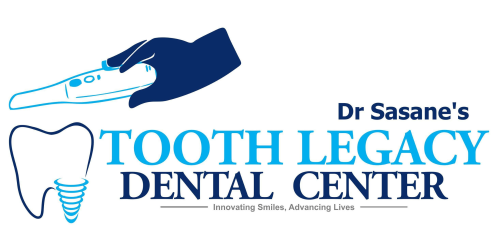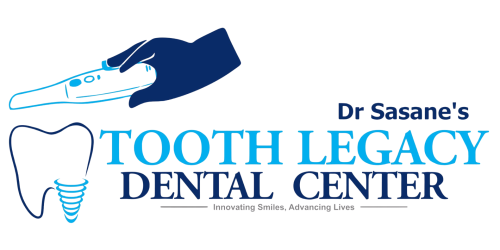
Your oral health is more than just a bright smile—it’s a window into your overall well-being. Ignoring dental issues can lead to serious complications, from infections to systemic health problems. Recognizing the warning signs early can save you from unnecessary pain and costly treatments down the line. In this guide, we’ll walk you through the top 12 signs that indicate you need to visit a dentist immediately. Let’s dive in.
1. Don’t Ignore These Warning Signs: Why Timely Dental Visits Matter
Dental problems don’t always announce themselves with obvious symptoms. Sometimes, subtle changes in your mouth can signal underlying issues that require immediate attention. Regular dental visits are essential, but certain signs should prompt you to schedule an appointment right away. Here’s what you need to know.
2. Persistent Dental Pain: A Cry for Help
If you’re experiencing persistent tooth pain, it’s a clear sign something is wrong. Toothaches can be caused by cavities, infections, or even abscesses. While over-the-counter pain relievers may provide temporary relief, they won’t address the root cause.
When to Act: If your tooth pain lasts more than a day or is accompanied by swelling, fever, or difficulty chewing, it’s time to see a dentist immediately. Early intervention can prevent further damage and save your tooth.
3. Your Gums Are Sending Signals: Bleeding, Swelling, or Receding
Bleeding gums after brushing or flossing might seem normal, but it’s often an early sign of gum disease. Swollen or receding gums are also red flags that shouldn’t be ignored. Gum issues like gingivitis can progress to periodontal disease if left untreated, leading to tooth loss.
What to Do: Rinse your mouth with warm salt water and maintain good oral hygiene. However, if the bleeding persists or your gums feel tender, schedule a visit with your dentist to rule out gum disease or other concerns.
4. You’re Hiding Your Smile: The Emotional Toll of Dental Issues
Do you find yourself covering your mouth while smiling or avoiding social situations because of discolored, crooked, or missing teeth? Cosmetic dental issues can take a toll on your confidence and self-esteem. Addressing these concerns isn’t just about aesthetics—it’s about reclaiming your quality of life.
The Solution: Modern dentistry offers solutions like veneers, implants, and teeth whitening to help you achieve the smile you’ve always wanted. Consult your dentist to explore your options.
5. Recent Dental Work Gone Wrong: What to Do
If you’ve recently had dental work done and notice issues like loose crowns, broken fillings, or discomfort, don’t wait to address them. These problems can worsen over time, leading to infections or further damage.
Immediate Steps: Use dental wax or temporary adhesives as a short-term fix, but book an appointment with your dentist as soon as possible to ensure proper repair.
6. Managing Systemic Health Conditions: The Mouth-Body Connection
Conditions like diabetes, heart disease, and pregnancy can significantly impact your oral health. For example, pregnant women may experience pregnancy gingivitis, while diabetics are more prone to gum infections. These systemic health issues make regular dental checkups even more critical.
Signs to Watch For: Increased gum sensitivity, dry mouth, or persistent bad breath could indicate a connection between your oral health and overall well-being. Inform your dentist about any underlying health conditions during your visit.
7. Trouble Eating? It Could Be More Than Just Aging
Difficulty chewing due to loose teeth, jaw pain, or sensitivity can affect your diet and nutrition. These issues are often linked to TMJ disorders, missing teeth, or advanced gum disease.
Why It Matters: Restoring your ability to eat comfortably improves not only your oral health but also your overall quality of life. Talk to your dentist about solutions like dental implants or bite adjustments.
8. Dry Mouth: A Silent Indicator of Bigger Problems
Dry mouth might seem like a minor inconvenience, but it can increase your risk of cavities and gum disease. Causes include medications, dehydration, or autoimmune conditions like Sjögren’s syndrome.
How to Manage It: Stay hydrated, chew sugar-free gum, and use saliva substitutes if needed. If dry mouth persists, consult your dentist to identify the underlying cause and explore treatment options.
9. Tobacco Use and Oral Health: Recognizing the Risks
Smoking or chewing tobacco significantly raises your risk of gum disease, oral cancer, and tooth loss. Early warning signs include white patches, sores that don’t heal, or persistent bad breath.
Take Action: Quitting tobacco is the best step you can take for your oral and overall health. Schedule regular screenings with your dentist to monitor for potential issues.
10. Jaw Pain and Clicking Sounds: Don’t Ignore TMJ Issues
Jaw pain, clicking sounds, or difficulty opening your mouth could indicate a TMJ disorder. This condition can result from stress, teeth grinding, or misaligned jaws.
Treatment Options: Your dentist may recommend a custom night guard, physical therapy, or other interventions to alleviate symptoms and prevent long-term damage.
11. Spots, Sores, and Discolorations: When to Worry
Abnormal spots, sores, or patches in your mouth that don’t heal within two weeks could be early signs of oral cancer. Other symptoms include numbness, difficulty swallowing, or unexplained weight loss.
Why It’s Urgent: Early detection saves lives. If you notice any unusual changes, schedule an appointment with your dentist immediately for a thorough examination.
12. Prevention Is Key: Why Regular Checkups Save Lives
Preventive care is the cornerstone of good oral health. Regular dental visits allow your dentist to catch issues early before they escalate into emergencies. Cleanings, X-rays, and screenings are simple yet effective ways to protect your smile.
How Often to Visit: Most adults should see their dentist every six months, but those with specific risk factors (e.g., smokers, diabetics) may need more frequent checkups.
Take Control of Your Oral Health Today
Recognizing the signs that warrant a dental visit can save you from pain, complications, and costly treatments. Whether it’s persistent tooth pain, swollen gums, or trouble eating, addressing these issues promptly ensures your smile stays healthy and radiant.
At Sasane Dental Clinic, we’re committed to helping you achieve optimal oral health. Our team of experienced dentists uses state-of-the-art technology to diagnose and treat a wide range of dental concerns. From routine cleanings to emergency care, we’re here to support you every step of the way.
Don’t wait for symptoms to worsen—take control of your oral health today. Schedule your appointment with Sasane Dental Clinic now and experience personalized care designed to keep your smile shining!




